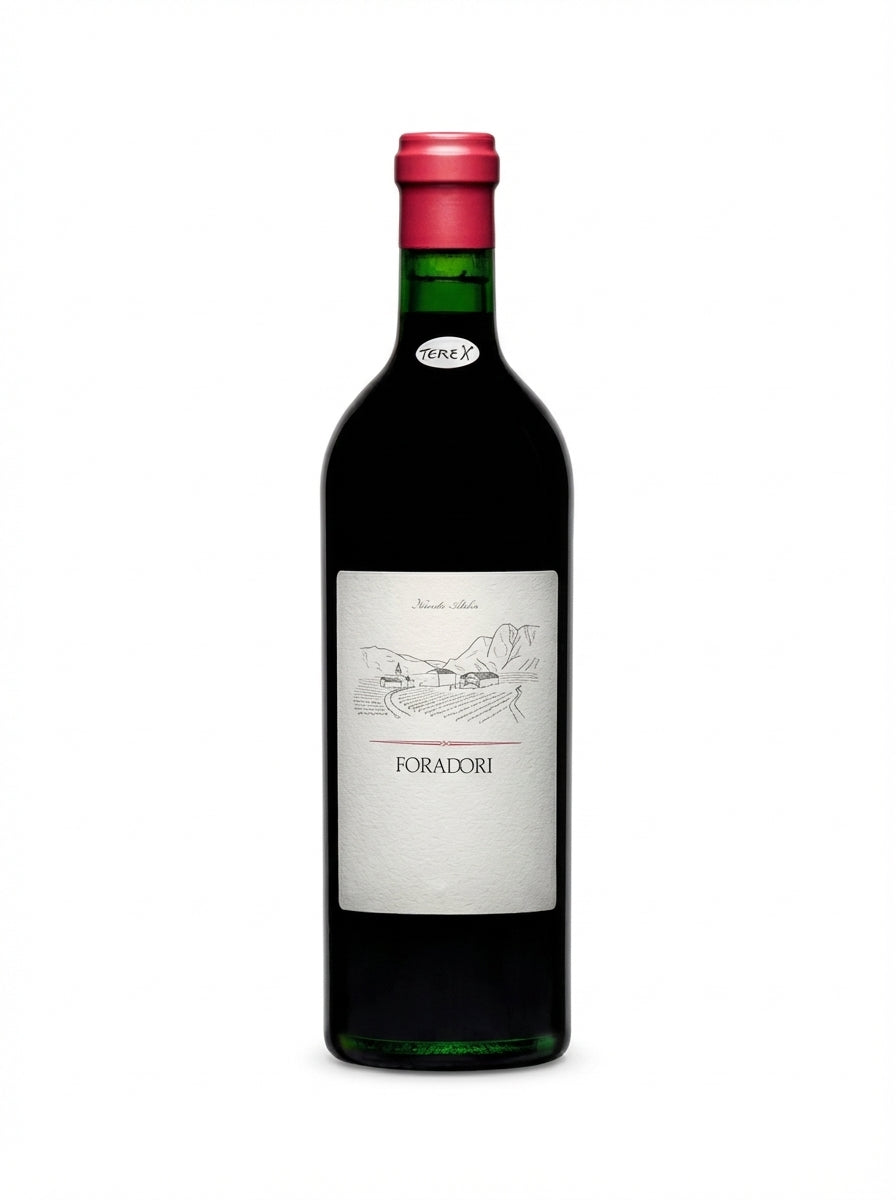2023 Foradori Teroldego IGT
Foradori Teroldego is a 100% Teroldego produced in Campo Rotaliano—a geographically well‐demarcated area along the Noce River noted for its predominantly sandy and gravelly soils on a sunny, flat, and well‑drained plateau. The estate’s vineyards, comprising 9 hectares with plantings dating from 1956 to 2005, are managed by gathering grapes from distinct micro zones that reflect varying soil characteristics and quality requirements. This approach, along with techniques such as amphora aging employed for select single‑vineyard expressions, underscores a winemaking philosophy refined over a 30‑year career by Elisabetta Foradori. The process emphasizes a strong connection to the terroir, capturing the influence of the surrounding mountains and cool climatic conditions traditionally associated with the Trentino region—a heritage that has shaped the identity of Teroldego since the 15th century and its historical links to varieties like Lagrein and Syrah.
Regular price
$40.00
Regular price
Sale price
$40.00
Geography
Farming
Harvest
Grapes are hand‐harvested—often sourced from multiple parcels—and may be partly destemmed while retaining some whole clusters and uncrushed berries.
Fermentation
Vinification employs spontaneous fermentation with indigenous/wild yeasts in cement tanks, clay amphorae, or open‐top vessels. Techniques include layering whole clusters alongside destemmed fruit, with minimal sulfur initially (in some cases none until racking or bottling) and a small dose added later when necessary.
Aging
Wines are aged for approximately 12 months using a variety of vessels including concrete tanks, French oak barrels, clay amphorae, foudres, and well‐worn 20–40-hectoliter botti, or in a combination of concrete and wooden vats. In some cases, maceration in closed vessels follows an initial 6–8-month open‐top period or an eight-month skin contact phase in Spanish clay amphorae.


